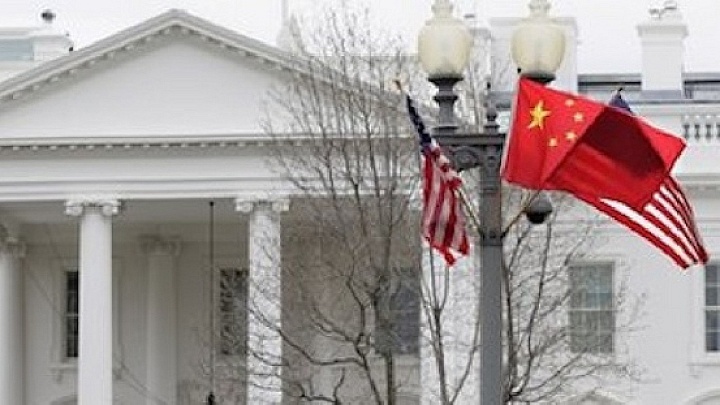Are We at our Norman Angell Moment with China?

Christopher Cokers new book, The Improbable War: China, The United States and Logic of Great Power Conflict, opens with a discussion of the parallels between the turn of the 20th century and today. We caught up with the London School of Economics professor to discuss U.S.-Chinese relations, theories of international relations, and the meaning of Chinese Exceptionalism.
You bring up Norman Angell’s The Great Illusion and how he was misinterpreted. But are we in a similar position as pre-1914 Europe? Should we be comparing illiberal Germany to illiberal China today? If so, what the main lessons we should learn from that era?
At the Davos Conference in January 2014, Prime Minister Abe warned the international community that war between Japan and China was not as improbable as many thought. He did not say it was inevitable, or even likely, but he warned that if the world continued to think it ‘improbable’ then they would be making the same mistakes that Europe made in 1914. This is the principal lesson to be learned from the crisis that led to a European war.
Do you believe the US is in decline, or is China ascendant? Or is it both?
China is certainly in the ascendant. It has enjoyed the largest economic growth in history and has secured the position it last held in 1820 as the world’s largest economic power. Whether the United States is in absolute or relative decline is of course the question. The US has certain advantages in geopolitical position; 3-D printing; shale oil (probably exaggerated); immigration etc. that gives it unique advantages, together with a democratic system that should make it more resilient. Nevertheless, there is a perception of decline in the US political elite and what is more the decline is often attributed to the rise of China (as America’s so-called ‘decline’ in the 1980s was attributed to Japan).
We always discuss American Exceptionalism and the American Dream. What’s the Chinese Dream, both at the individual and at the state level?
No one, including the Chinese, know what the Chinese Dream actually amounts to. Is it neo-Confucian? Both China and the US claim to be ‘exceptional’ powers, though the ‘myth’ of American exceptionalism is becoming more difficult to sustain. China is on the rise but we don’t know the trajectory. We rely on trend analysis and trends are of dubious value: they don’t tell us the speed, end point, or help us to identify the outliers – the counter-trends that may be more important. If China has a dream it is not sharing it with anyone which is hardly surprising. Seventeen different agencies have been identified that help formulate Chinese foreign policy. In the end, America still lives on in the imagination of other countries; China doesn’t live in the imagination of anyone else.
You talk a lot about norms. We think of liberalism as an embedded norm that defines the international order. But Chinese scholars may prefer, say, Confucian norms to undergird the system. Are these two worldviews incompatible in the long run? Are we bound to b
